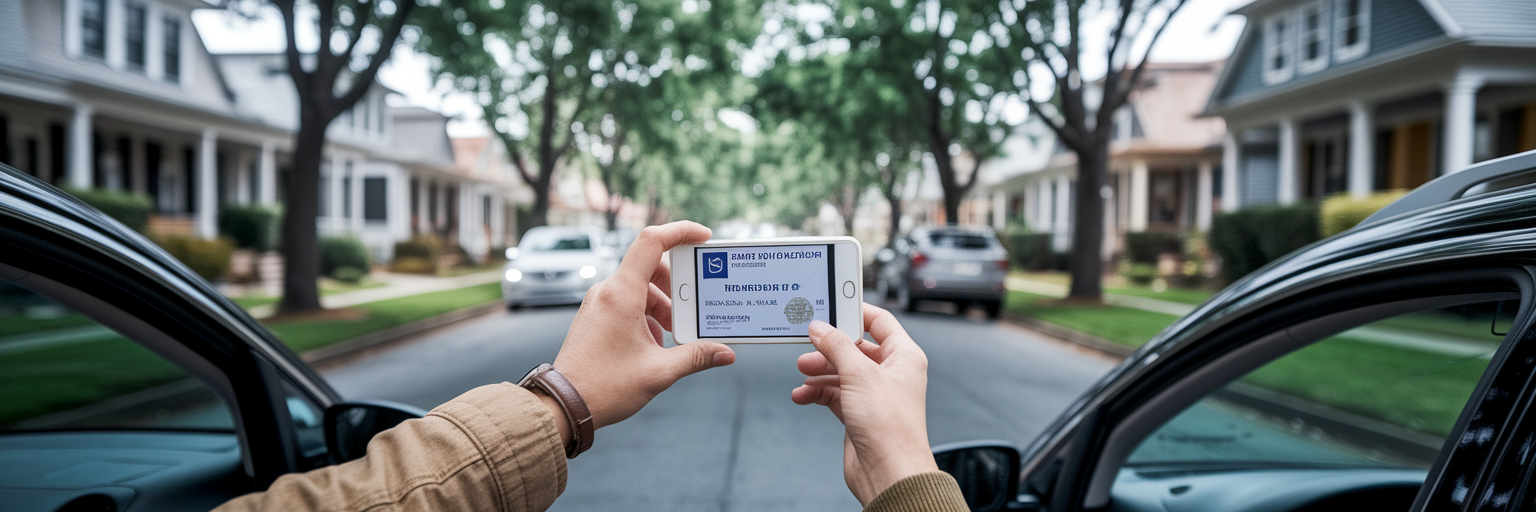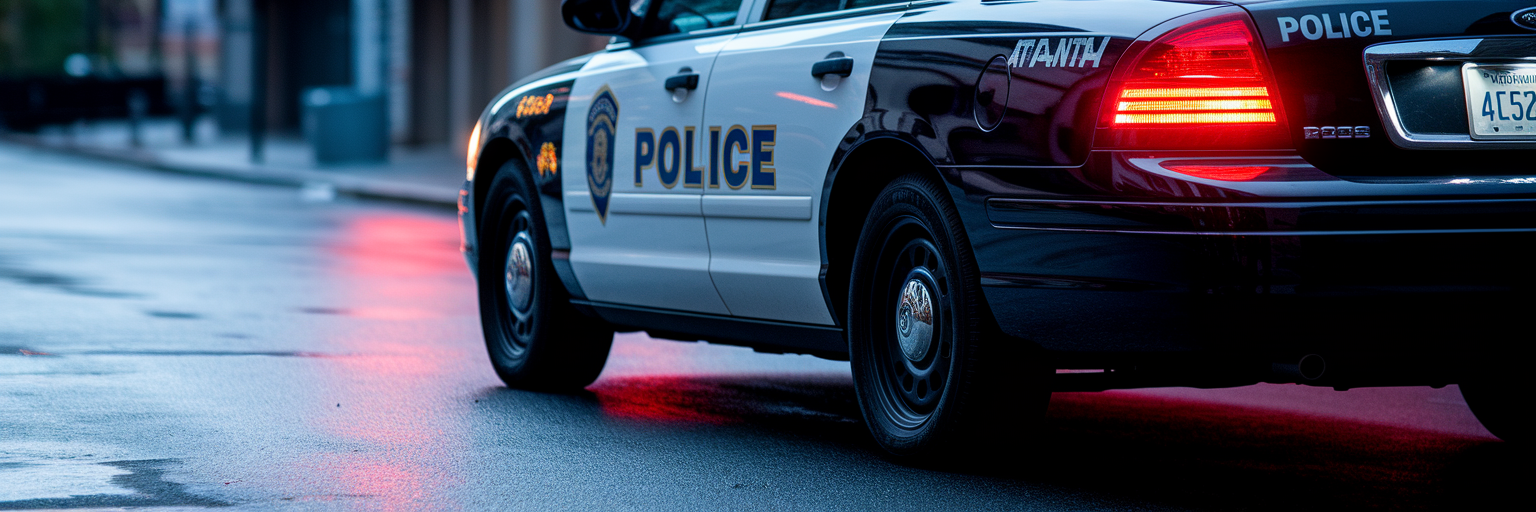The sound of crunching metal is jarring anywhere, but on North Highland Avenue, it feels amplified. With its narrow lanes, constant foot traffic from shops and restaurants, and cars pulling out from tight parking spots, even a low-speed collision can feel chaotic. Knowing what to do after a fender bender in this unique environment can make all the difference.
First Steps for Safety on a Busy Street
In the moments after a crash, your first instinct might be panic. That's normal. But taking a deep breath and focusing on safety is your immediate priority. First, check on yourself and your passengers, then the occupants of the other vehicle. Adrenaline can easily mask pain, so even if you feel fine, be thorough.
Next, turn on your hazard lights. This simple action is critical for warning other drivers who are navigating the same tight street. Now comes a crucial decision: should you move the cars? If it’s a minor North Highland Avenue collision with no apparent injuries, the best move is to get out of the flow of traffic. Find a safe spot on a nearby side street like Greenwood Avenue or Adair Avenue. This prevents a simple fender bender from causing a major traffic jam and reduces the risk of a secondary accident.
However, if there are injuries or significant vehicle damage, leave the cars where they are. Moving them could complicate an investigation. In either case, remain calm and cooperative. Arguments at the scene never help and can only escalate a stressful situation.
A Checklist for Exchanging Driver Information
Once you are in a safe location, the next step is to exchange information. This isn't just a formality; it's the foundation of your insurance claim. We have all felt that post-accident fog where it is hard to think clearly. Using your phone to take pictures of the other driver's license and insurance card is the most reliable way to capture everything accurately.
One of the most important things to remember is to stick to the facts. Avoid saying "I'm sorry" or admitting fault, as these statements can be used against you later. Your focus should be on gathering the necessary details. This minor car accident checklist Atlanta drivers can use is designed to be a simple reference in a stressful moment.
| Information to Collect | Why It's Critical | Pro Tip |
|---|---|---|
| Full Name and Address | Identifies the driver for insurance and legal purposes. | Cross-reference the name on the driver's license with the insurance card. |
| Phone Number & Email | Ensures you can contact the other party if needed. | Make a quick test call to their number on the spot to verify it works. |
| Driver's License Number | Official identification required by insurance companies. | Take a clear, glare-free photo of the front of their license. |
| Insurance Company & Policy Number | This is who you will file a claim against. | Photograph the insurance card. Note the expiration date. |
| Vehicle Make, Model, & Color | Helps identify the specific vehicle involved. | Note this down yourself; don't just rely on the other driver. |
| License Plate Number | The primary identifier for the vehicle. | Take a photo of the license plate on both the front and back of their car. |
Following these steps is crucial for protecting your rights. Every Atlanta car accident has unique challenges, and having complete information from the start prevents major headaches down the road.
Using Your Smartphone to Document the Scene
With driver information secured, your smartphone becomes your most important tool for gathering evidence. Think of yourself as a reporter creating a complete record of the event. A detailed visual and written account is far more reliable than memory alone.
Follow these steps to build a strong record of the Virginia-Highland car accident:
- Photograph the Damage: Take pictures of both cars from multiple angles. Get wide shots that show the vehicles in relation to each other and the road. Then, move in for close-ups of the specific points of impact, dents, and scratches.
- Document the Environment: This is especially important in a distinct location like Virginia-Highland. Take photos of street signs, like the intersection of North Highland and Virginia Avenue, along with any nearby traffic signals or stop signs. Look for skid marks or debris on the road. These details establish the exact location and conditions.
- Look for Witnesses: Scan the sidewalks and local storefronts. Pedestrians or shopkeepers may have seen exactly what happened. If you find someone, politely ask for their name and phone number. An independent witness can be incredibly valuable.
- Create Your Own Narrative: Open the notes app on your phone and write down everything you remember immediately. Include the time of day, weather conditions, and a step-by-step account of what led to the collision. This contemporaneous record is far more powerful than trying to recall details days later.
When to Involve the Atlanta Police Department
Many drivers wonder if they should call the police for a minor collision. The answer is almost always yes. In Georgia, you are legally required to report an accident if there are any injuries or if property damage appears to exceed $500. Considering the cost of modern auto body repairs, where even a small dent can run into the thousands, nearly every fender-bender meets this threshold.
An official police report is an unbiased, factual record that is indispensable when dealing with insurance companies. When the Atlanta Police Department arrives, an officer will typically separate the drivers, take statements, and create a report documenting the incident. Provide a clear, factual account of what happened, but avoid guessing or assigning blame. Let the officer draw their own conclusions from the evidence.
After the accident, you can typically obtain a copy of your report online from the APD. Many drivers are unsure about these next steps, a common topic of discussion in online forums. As a Reddit thread on the topic shows, people often debate when it is worth it to get a lawyer after a car accident. Having an official report is the first step toward clarity.
Knowing When to Consult a Car Accident Attorney
After you have handled the immediate aftermath, your focus shifts to making sure you are treated fairly. While you can handle some minor claims on your own, certain red flags indicate you should seek professional advice.
Consider consulting an attorney if you encounter any of these situations:
- The other driver begins to dispute who was at fault.
- You suspect the other driver was distracted, texting, or otherwise impaired.
- The other driver is uninsured or underinsured.
- You or any of your passengers, especially children, report any pain.
It is a counterintuitive fact that some of the most serious injuries, like whiplash, may not show symptoms for days. An insurance adjuster's job is to settle the claim for the lowest amount possible. An attorney's role is to manage all communication with them, protecting you from being pressured into an inadequate settlement. An attorney's job is to protect your interests and fight for a fair outcome, and our firm's track record can demonstrate its commitment to clients.
Making an informed decision is key. An initial consultation with an experienced Atlanta car accident lawyer is typically free and provides a clear understanding of your rights and options, empowering you to secure fair compensation for your vehicle, medical bills, and other damages.



